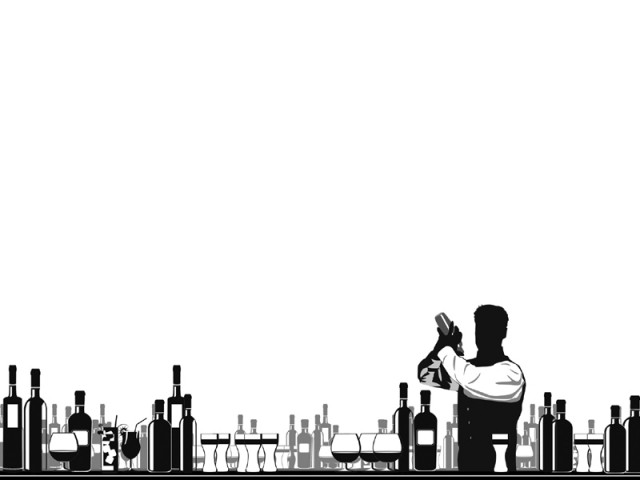Interview with a bartender: Where does prohibition start and end?
In the business for 30 years, man shares the ins and outs of bartending in Islamabad.

Naseer, a familiar face among the booze-swigging community of Islamabad, has been a bartender for almost 30 years.
All those years back, Naseer was a helper at a German High Commissioner’s residence. However, after observing and assisting the regular bartender plying his craft, he soon managed to become well enough versed in the art to fill the vacant position at the South African High Commissioner’s residence.
Regardless of prohibition set during Zulfiqar Ali Bhutto’s government in 1977, there remains a sizeable liquor market in Pakistan. About 4% of Pakistani population is non-Muslim, mostly Christian, and are eligible for alcohol permits and can buy up to 100 bottles of beer or five bottles of liquor per month, although these limits are not strictly enforced. Non-Muslim foreigners are allowed to order alcohol in restaurants and hotels that have liquor licenses, mostly those in five star hotels, and foreigners can also apply for alcohol permits.
Loopholes in the prohibition law gave rise to the lucrative black market, which in turn have created many job opportunities for those with the right service skills.
Although he is also available for ‘dry’ functions, Naseer says he serves at about 18 parties and other events every month where alcohol is served. “The alcohol is provided by whoever hires the bartenders, not the bartenders themselves.”
Naseer charges about Rs3,000 per party and Rs2,000 for a wedding-related functions which are usually dry, or where the number of bar loyalists is usually much lower.
On the volume of business, he commented that there are months where business is quite slow and work is hard to come by.
The bartending network is based on individuals and not small companies. His son, Fayyaz, 32, a travel agent by day, is also a bartender by night. Fayyaz shares that he enjoys bartending as it exposes him to people of various backgrounds and nationalities, something he would normally never get to do.
The father-son duo shared that if a very big party comes up, bartenders are hired on an individual basis and word of mouth from other bartenders. The system is thus dependent on relationships within the tight-knit community as business is based on communication and strong ties rather than competition.
Naseer candidly shares, “I feel that if one is interested in pursuing a better life, they become quick learners.”
Naseer also feels that bartending is definitely higher paying than one as an attendant, is more socially respectable, allows a degree of flexibility and allows him to make use of his Matric degree. “Plus, with my mornings free, I can go fishing whenever I want.”
Even though Naseer and Fayaz are very proud of their profession, they are also aware of the stigma attached with alcohol in Pakistan. Although they are both teetotallers, they feel they have no right to judge anyone’s personal decisions.
Naseer points out that in all his years of mixology, he has observed that even though it is frowned upon or forbidden in different religions, alcohol consumption is ultimately a personal and social action rather than a religious one. “There are many lower-middle class Christians who don’t drink and lots of rich Muslims who do.”
A few may look down on bartending in Pakistan as it arguably facilitates an illegal activity, but an individual who makes the choice to consume or distribute alcohol is not necessarily guided by religious inclinations, but how acceptable it is in their socioeconomic surroundings and to their own personal faith.
The relationship between alcohol consumption and distribution is a very complicated one as it is not only based on religion but religiosity, socio-economic status, nationality, socialisation, and of course, personal preference.
The example of Naseer and Fayaz shed an interesting insight into these factors and shows that prohibition doesn’t make matters black and white.
* Edited by Vaqas Asghar
Published in The Express Tribune, March 26th, 2012.



















COMMENTS
Comments are moderated and generally will be posted if they are on-topic and not abusive.
For more information, please see our Comments FAQ